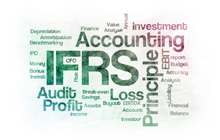Abusing income is self-destructive to the accounting profession

Columnist Al Rosen says loose definitions of income could ultimately be destructive to the accounting profession
Inflating income so as to falsely increase a stock’s price, and to thereby increase stock option values and management bonuses, has been a long-standing game of stock promoters. Bloated substitutes for “income” include favourites such as EBITDA (earnings before interest, tax, depreciation and amortization); adjusted EBITDA; faked operating cash flow; and much more.
The most brazen, extreme exaggeration gaining popularity is the IFRS version of income. Controls are essentially negligible in Canada to reign in outrageous extremes in what is labelled as income.
Responsible accountants should fiercely protect a credible definition of income, which is the original reason for the existence of financial reporting. Income over time has to be a form of discounted future cash flows. Without believable income reporting, why issue financial statements? Why have audits?
Investors and creditors want to know whether an entity actually is earning a justifiable, evidence-based income. Lawmakers over 150 years ago stated that shareholders should be granted such information “rights,” to know whether their company’s officers were squandering their capital investment dollars or were actually earning a legitimate profit. Credible income reporting was the cost, so to speak, of limited liability incorporation, which faced much resistance at the time.
Separating invested shareholder dollars from earned income or profits thus became one of the vital requirements. Income initially became defined in harsh terms along the lines of “how much cash did you receive and is left over after paying expenses?” Subsequent accrual accounting gradually lessened the harshness somewhat, as long as receivables could be collected soon in cash or equivalents.
Ponzi schemes arrived in the early 1900s, which provided another absolutely crucial reason for separating earned income from shareholders’ capital investment dollars. Ponzi tricksters would give you back your own initial dollar investment, bit-by-bit, but chose to call it “income” or “dividends from income.” Variations on these Ponzi schemes still flourish widely today.
The “business income trust” fiascos of a decade ago in Canada included numerous Ponzi schemes. Losses to investors were in the multi-millions of dollars, because lawmakers in Canada ignored the ongoing financial trickery. Such neglect clearly is even worse today because investors rarely complain to lawmakers about such abuses.
Pre-2010 in Canada, cost-based accounting had the advantage of using dollar figures that were affixed to completed, bargained and usually credible third party transactions. However, evolving financial business practices, such as with derivatives, meant that historical cost was less comprehensive reporting in some industries, and thus required some modifications for what constituted income.
But, where we have deeply failed in Canada since 2010, has been in defining what constitutes “credible evidence” for permitting departures from historical-cost-based reporting. For example, we should have learned from the deeply flawed “credit default swaps” pricing of derivatives and similar. Faulty pricing was instrumental in the 2008 worldwide market collapse. Serious “valuation” dangers can lurk. Rigged figures must be rejected.
Yet, it is more than clear in Canada today that the so-called inventory pricing of growing, unsold marijuana, and the auditing thereof, is thoroughly out-of-control.
Auditor acceptance of unsubstantiated selling prices and production volumes, and assumptions that “all will be well” in the future, is destructive. What could possibly be the marijuana growers’ and auditors definition of “acceptable evidence”? The proximity to cash receipts of unsupported revenue and expense figures can be a fanstasy.
For decades, the need for “sufficiency” and “appropriateness” of audit evidence has been widely described. “Sufficiency and appropriateness” must be linked to impacts on investors and creditors, and their invested dollars. Grossly-overstated “income” lies at the heart of endless Canadian financial failures.
An asset that generates little or no cash cannot have much current value. Faked valuations of assets, in turn, become interlinked with imagined income and collapsing operating cash flows. Why these interconnections are not being made by too many auditors can only be described as astounding.
Thus, the non-cash idea of re-valuing assets such as buildings (as under IFRS) has long been the cause of huge Canadian investor losses. Based on faked appraisals (through management mandating a desired lower return or discount rate on its investment), a lender can be duped into providing more money to the building-owner. Yet no additional cash revenue/income can easily result from the increased fake asset value. Distorted thinking can be that accrued revenue is an “economic benefit” under IFRS, and will be collected when the building is sold. This is evidence? This scam has been utilized endlessly in Canada.
Canada’s financial reporting since 2010-11 has severed the close, obvious, long-term economic relationships that have to exist among operating cash flow, income and so-called balance sheet values. Audit evidence can only be “sufficient and appropriate” when the dollar interlinkages of cash flow, income, and asset/liability tie the numbers together. Faked income apparently has become far too easy to be audited in Canada. Under current circumstances auditor credibility is seriously at issue.
Dr. Al Rosen, FCA, FCMA, FCPA, CFE, CIP and Mark Rosen, MBA, CFA, CFE, provide independent, forensic accounting investment research to investment advisors and institutional portfolio managers. They are the co-authors of Easy Prey Investors: Why Broken Safety Nets Threaten Your Wealth. Learn more at Accountability Research Corporation and Rosen & Associates Limited.
The views and opinions expressed by contributing writers to Canadian Accountant are their own. Canadian Accountant and its parent company bear no responsibility for the accuracy and opinions of contributing writers.











(0) Comments